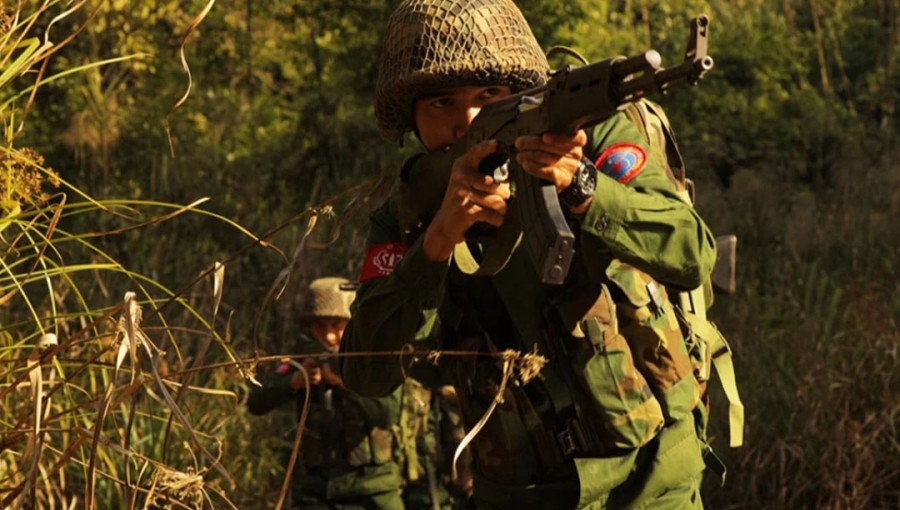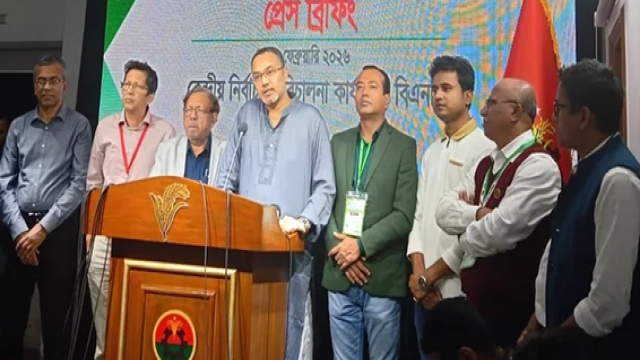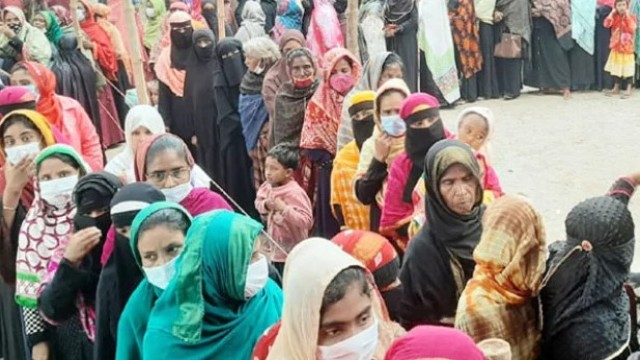Myanmar, Aug 28 (V7N): The International Crisis Group (ICG), a global non-profit organization focused on preventing wars and shaping policies for peace, has called on Bangladesh’s interim government to engage with the Arakan Army, an ethnic Rakhine group that is establishing a proto-state on the Myanmar-Bangladesh border.
The Arakan Army has taken control of most of central and northern Rakhine State, bordering Bangladesh, and appears close to ousting the Myanmar military, according to an ICG report published on Tuesday. The report suggests that Bangladesh should consider increasing its engagement with the Arakan Army to stabilize the borderlands, while donors should explore ways to expand humanitarian operations throughout Rakhine State, despite the risks and legal constraints involved.
Bangladesh has already provided refuge to over a million Rohingya Muslims who fled ethnic cleansing in Rakhine State. Although talks were ongoing for their return from Cox’s Bazar, the situation has become volatile following renewed conflict between the Arakan Army and the Myanmar military in late 2023.
The ICG report notes that while the Myanmar military has responded with indiscriminate attacks and a blockade causing significant economic distress, the Arakan Army—drawing support primarily from Rakhine’s Buddhist majority—has continued its advance, allegedly attacking Rohingya Muslim civilians in northern townships.
In a bid to retain control of these areas and the border, the Myanmar military has reportedly conscripted Rohingya and collaborated with them, orchestrating the destruction of Rakhine homes. The report indicates that once the conflict subsides, the Arakan Army is likely to emerge as the de facto governing authority in Rakhine State, posing a challenge to outside actors on how to engage with the group.
To foster stability, the ICG recommends that the Arakan Army mend relations with the Rohingya, support an independent investigation into alleged abuses, and reach out to Dhaka and international donors, who should seek ways to collaborate with the group on shared humanitarian and security goals.
Bangladesh’s Role
Despite facing domestic challenges, Bangladesh has a key role to play in Rakhine State, according to the ICG. The emergence of a de facto statelet aspiring for permanent autonomy on its border will require the interim government in Dhaka to expand its engagement with the Arakan Army, regardless of its stance on the group’s ambitions.
The ICG advises Bangladeshi envoys to strengthen ties with the Arakan Army while emphasizing the importance of treating the Rohingya with humanity and dignity. To stabilize the borderlands and address the root causes of irregular migration, Dhaka should also allow more humanitarian aid to flow into the area and facilitate trade across the frontier.
Additionally, the ICG suggests that Dhaka should improve security in refugee camps, reduce the influence of armed groups there, and support the emergence of a genuine Rohingya civil society movement.
Other foreign governments are also encouraged to explore ways to work with the Arakan Army and neighboring states to enhance humanitarian access and expand assistance to all ethnic communities affected by conflict in central and northern Rakhine State.
Challenges for the Arakan Army
The ICG report highlights several challenges facing the Arakan Army, despite its likely success in driving out the Myanmar military. The group's political wing, the United League of Arakan, may lack the resources and capacity to govern the territory effectively and bring stability to the region.
While the group enjoys strong support from the Rakhine majority, which could buy it some time to address challenging living conditions, including lack of electricity, internet, essential services, and a war-torn economy, it is uncertain how long public resilience will last.
The report also notes that Rakhine State has few easily exploitable natural resources and limited trade and transport connections with neighboring Bangladesh and India, which have historically been less willing to engage with Myanmar’s ethnic armed groups compared to China or Thailand. Consequently, Rakhine remains heavily reliant on regime-controlled central Myanmar for essential goods and services, including electricity, communications, and banking.
At the same time, China and India are seeking influence in Rakhine for geostrategic reasons, while Bangladesh aims for the swift return of up to 1 million Rohingya refugees. Navigating this complex environment will be a significant challenge for the Arakan Army.
The report concludes by stating that the Arakan Army now faces a crucial test. Having achieved significant battlefield victories over the Myanmar military, the group must demonstrate its ability to bring stability to a neglected region of the country and govern in the best interests of all its inhabitants.
END/MSS/






























Comment: